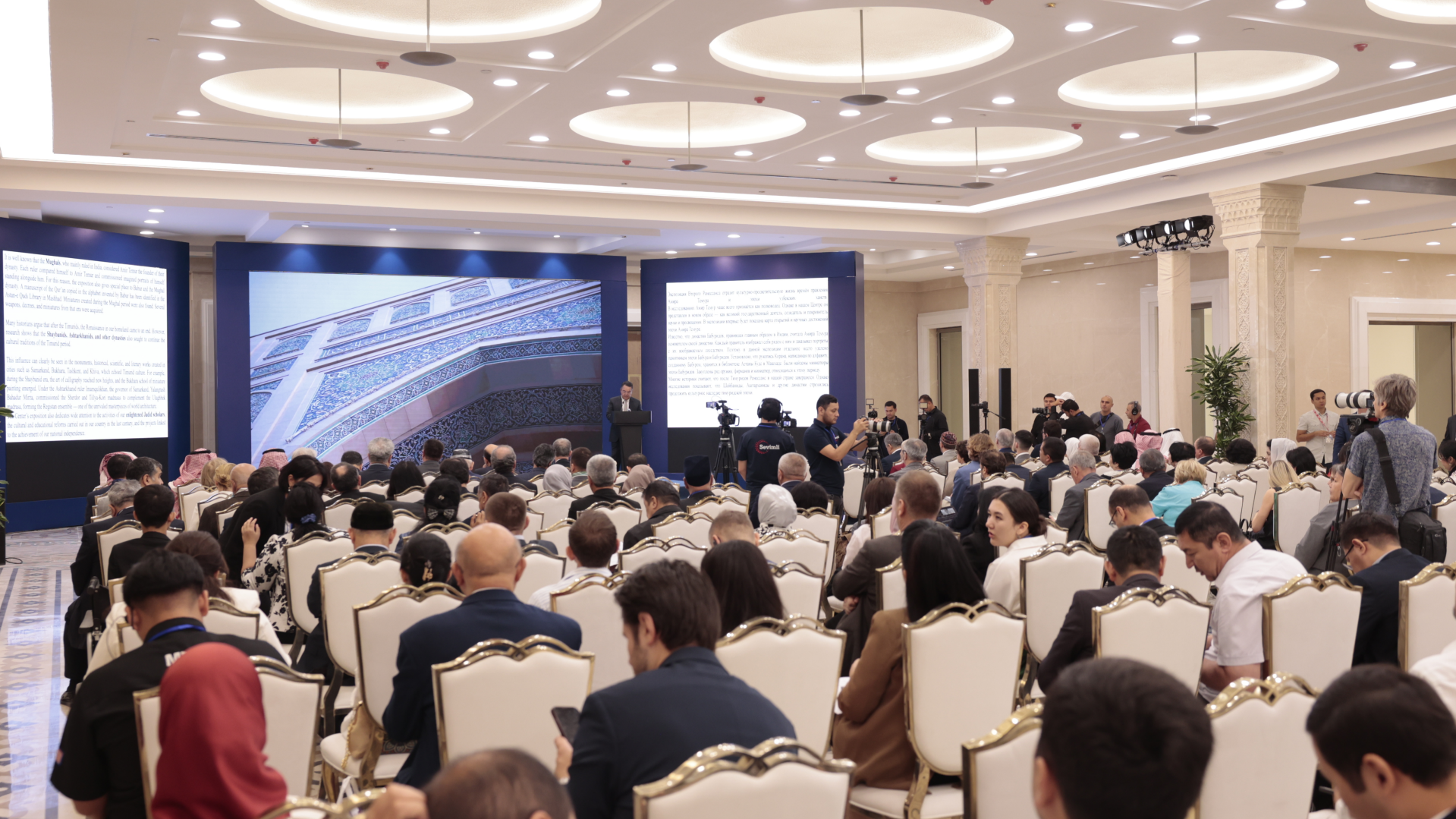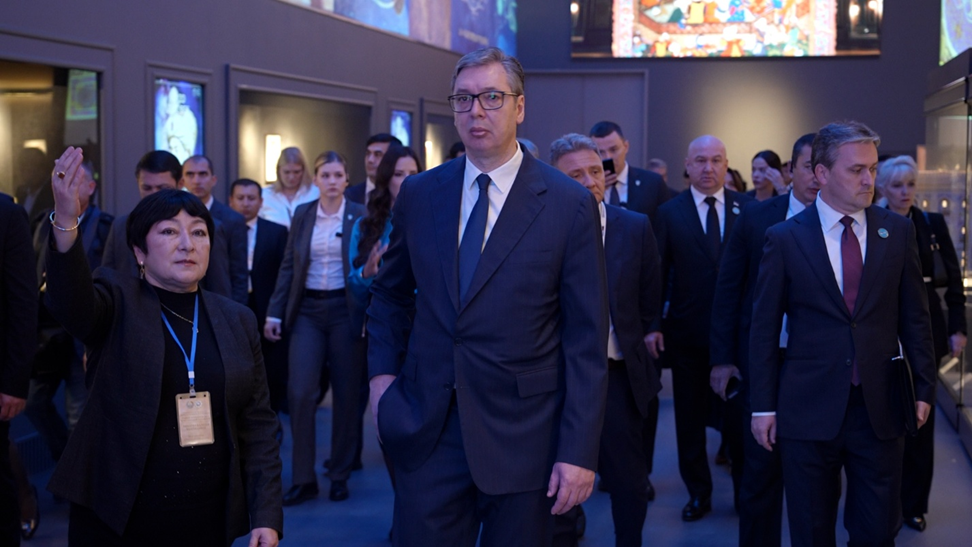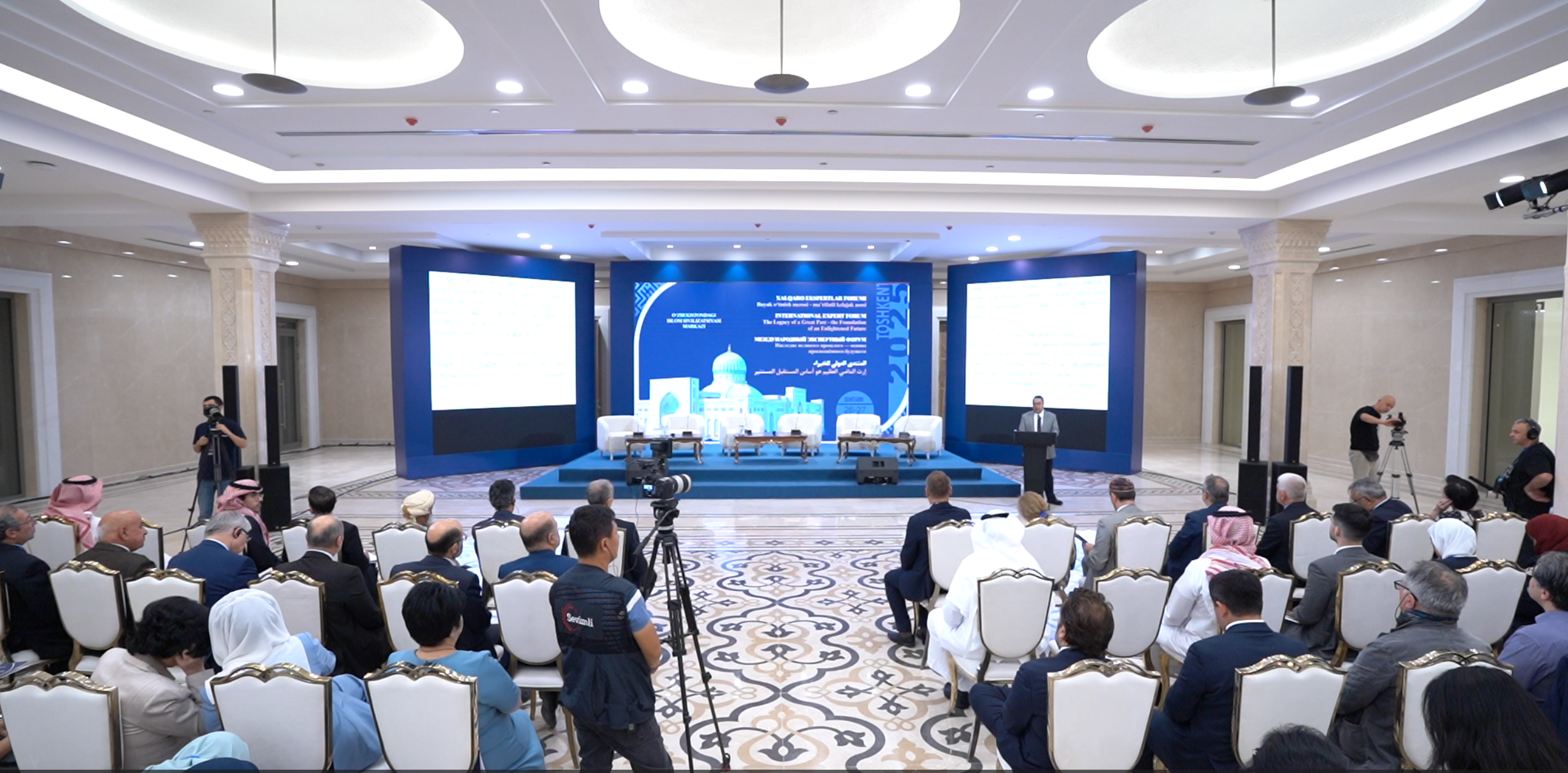THE POWER AND LIGHT OF THE SACRED WORD
The Center for Islamic Civilization of Uzbekistan, founded by our esteemed President, has recently published the seventh translation of the Holy Quran into Uzbek, entitled “Anvarul-Quran: "Fayzul-Furqan," translated by the skilled translator Mirzo Kenjabek. The translation is based on the translation, interpretation, commentary, and comments of Professor Hasan Tahsin, a commentator, memorizer of the Quran, holder of a license for ten readings, and Doctor of Theology.
It should be noted that the Quran Hall of the Center for Islamic Civilization of Uzbekistan will display the Quran of Hazrat Usman, the Great Anchor Quran, and 114 manuscripts of the Qurans belonging to our ancestors.
The hero of Uzbekistan, a brilliant literary scholar, a skilled translator, and a jeweler of the Uzbek language, Ibrahim Gafurov, in his speech on April 16, 2009, and the article “Quran Translations: Experiments” published in the newspaper “Uzbek Literature and Arts” he writes: “Due to independence, a new era of publishing and understanding the Quran and holy hadiths has begun. A new era of knowing the Quran and placing it in the hearts has come,” and “Not one, but several translations of the Quran into the Uzbek literary language have entered the homes of Uzbekistan with confidence and faith,” – I. Gafurov notes.
The Holy Quran and Its Translations
The Holy Quran is the miraculous word of our Lord, Allah, which has filled the earth with light, guidance, and mercy. The Quran is the sacred book for Muslims, the Divine law by which they are to live. The Quran is a book of mercy.
The Holy Quran is a compilation of revelations sent by Allah to the Prophet Muhammad (peace be upon him). These revelations are divine instructions sent by Allah to our Prophet. The Quran is the final heavenly book. The Quran has about 66 scientifically substantiated names, such as Quran, Furqan, Burhan, Kitab, Zikr, Tanzil, Nur, Mushaf, and others. This divine revelation, revealed over 23 years, consists of 30 parts, 114 surahs, and includes 6236 verses, which may be short or long. The shortest verses are from the surahs Taha and Yasin, and the longest verse is the 282nd verse of Surah Al-Baqarah. In these verses, Allah revealed to the Prophet events and facts that are happening or will happen, starting from the smallest particles in the world.
63% of the verses were revealed in Mecca, and 37% in Medina. That is, 4780 verses are Meccan verses, and 1456 verses are Medinan. In total, there are 6236 verses.
The magic of this sacred word and its expression in the Arabic language is fully manifested when it is recited in Arabic, and its meaning is understood. When translated into other languages, the Arabic specificity, poetic style, enchanting sound, and spiritual impact are partially lost. Translating the content of the verses into other languages is impossible without losing some nuances, regardless of the translator’s skill and the richness of their language. However, reading and understanding the Quran in Arabic is not always accessible to everyone.
The translation of the Quran into other languages and its commentary began long ago, especially among the peoples who embraced Islam, and this became an important factor in the spread of the religion.
As I.Gafurov rightly pointed out, "The Qur'an is not only the property of Arabic-speaking nations, but it belongs to all pious, virtuous, and good-hearted people living on Earth, who measure their lives by goodness and righteousness. It is the spiritual and moral word of salvation for all who live by these principles."
The Qur'an has been translated into many languages of the world. Similarly, there have been several translations and commentaries written in Uzbek.
The translation of the Qur'an into various languages of the world is a significant cultural and educational event. The Qur'an has been translated into more than 250 languages globally. Specifically, it has been translated into nearly 120 versions in English, over 120 in French, more than 20 in Russian, and many others in Latin, Spanish, German, and other languages. Some of these translations are intended for Muslims speaking specific languages, while others are published for non-Muslim scholars and a wider audience. Some translations have arisen out of interest and academic pursuit, while others have been done with sincere Islamic faith. It is no secret that some translations have been made with the intent of denigrating the sacred Qur'an, seeking faults in it, that is, for antagonistic purposes.
It is known that there are numerous translations of the Qur'an into Turkic languages, including Turkish, Tatar, Azerbaijani, Kazakh, Kyrgyz, Turkmen, and Persian. The total number of translations and commentaries of the Qur'an in Turkic languages exceeds two hundred.
In 2004, Uzbekistan published the Qur'an in Braille for the visually impaired, with an introductory book. This edition is highly praised for its quality and unique appearance. It is important to note that Uzbekistan was the third country to publish the Qur'an in Braille after Egypt and Tunisia.
The Qur'an in Uzbek
In Turkic Uzbek, including commentaries, there are more than 10 annotated, explanatory, and translated versions of the Qur'an. However, we believe that as a complete translation, there are six full translations of the Qur'an, which are as follows:
-
Sayyid Mahmud Torozi – Oltinkhon To'ra Translation (1994)
-
Shaykh Hoji Muhammadjon Mavlavi Hindustani-Qoqandi Translation – "Bayonul Furqon fi tarjimatul Qur’on"
-
Shaykh Alouddin Mansur Translation – "Qur'oni karim. Uzbek Annotated Translation" (1992)
-
Shaykh Muhammad Sodiq Muhammad Yusuf Translation – "Tafsiri Hilol" (1991)
-
Shaykh Abdulaziz Mansur Translation – "Qur'oni karim meanings translation and commentary" (2001)
-
Shaykh Usmonxon Alimov's "Tafsiri Irfon" Translation.
The translation of the meanings of the Quran into Turkiс (Old Uzbek) and modern Uzbek languages holds significant historical and cultural importance. The translation of the Quran into Old Uzbek was completed in 1956 by our compatriot Oltinhon Tora in Saudi Arabia. The first translation into modern Uzbek was completed in 1991 by Aloviddin Mansur. This translation became an important event in the spiritual and educational life of Uzbekistan. It was first published in the magazines “Sharq yulduzi” in 1992-1993 and later issued in millions of copies by the publishing houses “Cho‘lpon” and “Gafur G‘ulom.”
Additionally, the commentary of Sheikh Muhammad Sodiq Muhammad Yusuf, "Hilol," and the translation of meanings by him became an important event in transmitting the Quran into the Uzbek language. This commentary and translation continue to be reprinted several times, and the demand for these works among Muslims remains strong.
The characteristics of the translation of the Quran and the commentary by Sheikh Abdulaziz Mansur are as follows:
- It is based on the commentaries of famous Muslim scholars of the Hanafi madhhab, and necessary references to other madhhabs are provided in relevant places. Differences between the four madhhabs in matters of fiqh are also highlighted.
- The translation of the verses accurately conveys the meaning of the Arabic text, with the addition of auxiliary words and comments in parentheses.
- The names of the books of commentaries and other sources used are provided in an abbreviated form with symbols after the quotes.
- For the convenience of readers, the translation and commentaries are placed next to the Arabic text of the Quran on the same page.
- The translator adhered to the current norms of writing and restored the orthography of the Uzbek language, which has changed since the 1990s.
In the translation by Sheikh Usmonkhon Alimov, “Tafsiri Irfon,” an explanation of the title of each surah is given, along with brief information on the topics discussed. The Arabic text of the verse is provided below its Uzbek translation, followed by the commentary. Many verses have commentaries based on other verses. The sources of the provided information are indicated and based on authoritative sources. If there are reports about the virtues of a surah, they are added at the end of the surah.
Moreover, works by well-known translators such as Domla Mahbubiy-Margiloniy, Shamshiddin Bobokhonov, Ismatilla Abdullaev, and others have also been made available to readers.
The translation “Qur’on karim: tarjima va ilmiy tarixiy izohlar” under the guidance of Islamic scholar Mutallib Usmon (Professor M.A. Usmonov), completed by a group of orientalists (U. Uvatov, A. Idrisov, I. Abdullaev), was not fully published and did not reach a wide audience, so we do not mention it separately. Also, previous translations and commentaries in Turkic languages were not widely known among the people, so we do not mention them separately. We only refer to those translations that were made available for public use.
It is important to note that different translations of the Quran do not contradict each other but complement each other. All translations have the common feature of being written in modern, simple, and understandable Uzbek. It can be said that each new translation is not the result of disputes but a vital necessity. At the same time, no translator can claim to have fully translated the miraculous Word of Allah, and no one can claim this. “Undoubtedly, no matter how perfect a translation may be, it can never replace the original. A translation can never be equal to the original,” emphasizes I. Gafurov.
Most read

Over 100 experts from more than 20 countries of the world are in Tashkent!

President of Serbia Aleksandar Vučić visited the Islamic Civilization Center in Uzbekistan

The Center for Islamic Civilization – a global platform leading towards enlightenment












